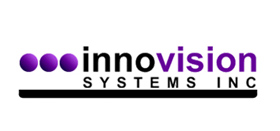Vision systems for robotic manufacturing applications have significantly evolved over the last decade. While the vision systems of old were unreliable, clunky and expensive, today’s systems are anything but. Proper vision systems can make the difference between an efficient robotic system and one that is not working optimally.
Here are 5 myths and truths about vision systems.
Myth #1: Vision System are Complicated
In actuality, modern vision systems are very simple to install and use. Most of the algorithms and communications are built in, so it can be very easy and quick to make adjustments without the help of a trained engineer. New users are often surprised just how easy it is to use and maintain their vision systems.
Myth #2: Vision Systems are not Reliable
If a vision system is properly applied, it will be highly robust, repeatable and reliable. Today’s vision system components are very robust, even in harsh environments. They are built to operate in rugged applications. Unlike a human, a vision system will see accurately every time. It never gets tired, takes a break or goes home for the evening.
Myth #3: All Vision Systems are the Same
There is no truly out-of-the-box solution for vision systems. Each application is unique, and many factors of need to be considered. Anyone who tells you there’s a plug-and-play option for your operations is not selling you a solution that’s properly engineered for your needs. Customized vision systems are the only ones that will work efficiently and reliably.
Myth #4: Vision Systems are Always the Best Solution
While vision systems are helpful in many robotic applications, there are some jobs in which vision may not be the answer. For example, operations that have drastic changes from part to part moving quickly on a single line may not benefit from a vision system because more discriminating inspection may be necessary. In addition, a vision system helps provide tight tolerances, so applications with loose tolerances may be just fine with sensors and not need to be upgraded to a vision system.
Myth #5: Vision Systems are Too Expensive
Just 10 years ago, typical vision systems cost an average of $30,000. Today, that same system may cost only $5,000 to $15,000. The evolution of vision technologies have brought down the cost considerably. In fact, many companies can see an ROI relatively quickly because a vision system requires fewer special fixtures and conveyors, decreases downtime for fixture changeout, and increases operations overall.
An efficient manufacturer must get products in and out of a cell quickly and reliably. Vision systems paired with robotic operations can put an operation at a competitive advantage by providing opportunities to make more and streamline the process for optimum profitablilty.
ALSO READ: FUELING INNOVATION IN MACHINE VISION
Back to All Robotics and Autonomous Systems Articles, Resources and News
Share This:
To Know More About Machine Vision System in Mumbai Contact Menzel Vision and Robotics Pvt Ltd Contact Us At (+ 91) 22 35442505 or Email us at info@mvrpl.com
Source - roboticstomorrow.com
































